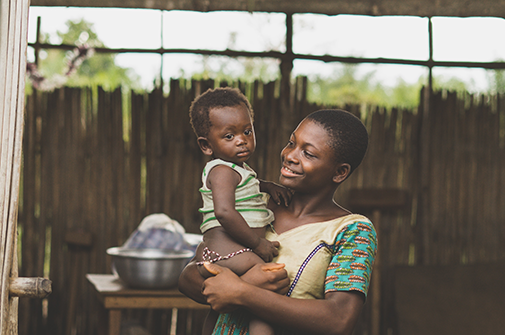Focusing on a secondary prevention strategy to fight cervical cancer
Aligned with the World Health Organization's (WHO) Global Strategy to Accelerate the Elimination of Cervical Cancer as a Health Problem launched on 17 November 2020, the SUCCESS - Scale-Up Cervical Cancer Elimination with Secondary Prevention Strategy project aims to contribute to achieving the objectives of this strategy through secondary prevention.
SUCCESS is funded by Unitaid and implemented by Jhpiego and UICC. It will screen 185,000 women, 40% of whom are living with HIV, in four countries: Burkina Faso, Côte d'Ivoire, Guatemala and the Philippines.
A preventable and curable disease
Worldwide, 604,127 new cases of cervical cancer are diagnosed each year, with 341,831 deaths (GloboCan 2020 Cervix Uterix). Cervical cancer is especially a significant burden in developing countries, particularly in Sub-Saharan Africa, with 90% of cervical cancer deaths occurring in low- and middle-income countries. Yet it is a preventable and curable disease when detected early and treated appropriately.
WHO estimates that a threshold of 4 women per 100,000 per year must be reached to consider that cervical cancer is no longer a public health problem. To achieve this, the WHO strategy puts forward the following more specific objectives:

The elimination of cervical cancer therefore requires a three-phase preventive strategy. The SUCCESS project, through its various activities, focuses on secondary prevention which aims to screen and treat precancerous lesions.
To achieve the project's objectives, SUCCESS implements various activities to raise awareness of HPV. They focus on training health actors, capacity building for civil society organisations and raising the awareness of men to HPV and cervical cancer.
Training health actors to achieve secondary prevention objectives
Staff training is an essential component to support the introduction of new technologies. SUCCESS takes a formative approach based on the principles of effective learning to advance cervical cancer prevention.
Using evidence-based data, technologically supported and contextualised according to the country, the approach proposed by SUCCESS will train service providers in HPV screening, visual assessment for the treatment of precancerous lesions and their treatment by thermal ablation. Working with government partners, the SUCCESS training materials are adapted to local realities and different types of providers. The initial training will be based on capacity building and sustainability. It will be followed by refresher workshops to ensure there is an adequate understanding of the techniques taught and a consistent service offer for the beneficiaries.
Building the capacity of civil society organisations for stronger advocacy
Actors from civil society organisations (CSOs) play a key role in the implementation of the SUCCESS project by contributing to generating demand and to scaling up a sustainable strategy for secondary prevention of cervical cancer.
Based on the assessment of the sites where screening and treatment services will be offered, a mapping of CSOs working on cancer or women's health issues has been developed for each of the target countries. SUCCESS aims to contribute to building the capacity of CSOs to form their own networks and carry out awareness campaigns, assess the political landscape and advocate for changes in policies and practices to bring about changes in knowledge, beliefs and norms. The contribution of CSOs and building their capacity are critical to the success of the SUCCESS project, particularly for the sustainability of secondary prevention services in the longer term.
Mobilising men in the fight against cervical cancer
As front-line players in the fight against cervical cancer, it is essential to raise awareness about HPV and associated cancers among men to dispel the taboos about sexually transmitted infections and the stigma that can result from them. To achieve this, SUCCESS will develop and disseminate educational materials for men in each of the four countries of implementation, in addition to organising regular participatory awareness-raising sessions. These sessions will mainly focus on gender equality issues, secondary prevention strategies for cervical cancer and HIV.
Low- and middle-income countries tend to have higher levels of gender inequality, which is also reflected in access to health services. Through this approach, the project aims to improve men's knowledge and understanding of women's health issues in order to improve the results of medical consultations related to sexual and reproductive health. This strategy is in line with the Reproductive Empowerment Scale for Measuring Women's Reproductive Empowerment in Sub-Saharan Africa. It measures women's autonomy in using sexual and reproductive health care based on five areas of assessment: women's communication with health care providers; communication with partners; decision-making; support from friends and family; social norms on issues related to women's reproductive health and fertility.
In addition to the 185,000 women targeted for the screening and treatment of precancerous lesions that SUCCESS aims to reach, a regional scope is also envisaged for this project, targeting some 20 countries through activities focusing on capacity building and health financing.
Funded by UNITAID, SUCCESS is implemented by Expertise France, in partnership with a consortium that already has experience and expertise in cervical cancer prevention and control: Jhpiego and the Union for International Cancer Control (UICC).
 Find out more about SUCCESS
Find out more about SUCCESS


